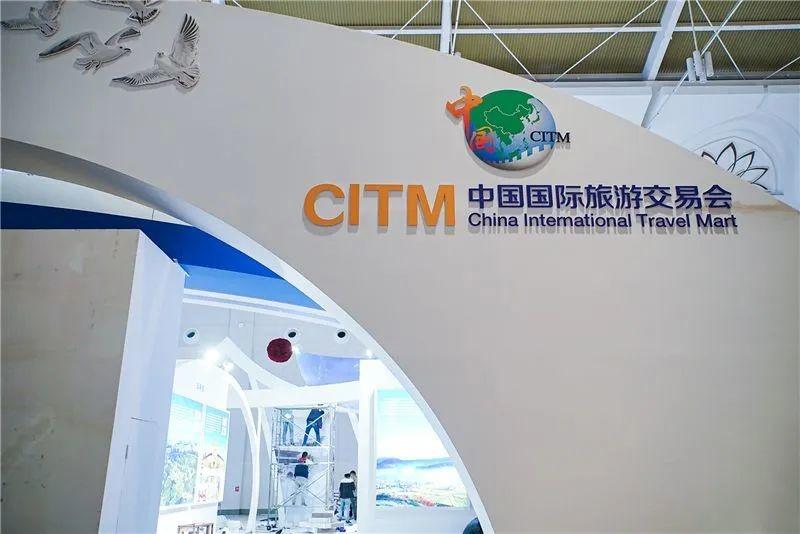 The 2022 China International Travel Mart (CITM) kicks off on July 22, 2022 in Kunming, capital of Southwest China's Yunnan province. (PHOTO PROIVDED TO CHINA DAILY)
The 2022 China International Travel Mart (CITM) kicks off on July 22, 2022 in Kunming, capital of Southwest China's Yunnan province. (PHOTO PROIVDED TO CHINA DAILY)
KUNMING - From lofty mountains in Xinjiang to the courtyard of Naxi culture in Yunnan, tourism in many parts of China is seeing rebounds and looking to upgrade the market.
Asia's largest professional travel expo, the China International Travel Mart (CITM) 2022 concluded Sunday in Kunming, capital of the southwestern province of Yunnan, amid warm response. It drew exhibitors from over 70 countries and regions, who set up nearly 4,200 standard booths on an exhibition area of 80,000 square meters.
After a travel lull since March due to sporadic resurgences in COVID-19 cases, northwest China's Xinjiang Uygur autonomous region is experiencing a surge in tourism. Since July, the leading tourist destinations in the entire region have seen over 110,000 daily visits, up more than 200 percent from June.
After a travel lull since March due to sporadic resurgences in COVID-19 cases, northwest China's Xinjiang Uygur autonomous region is experiencing a surge in tourism. Since July, the leading tourist destinations in the entire region have seen over 110,000 daily visits, up more than 200 percent from June
Yunnan, the host province of CITM, has also witnessed a tourism boom. In the second half of June, the hotel occupancy rate in the province increased by over 30 percent for the first time this year, and the number of air and railway passengers increased by 75 percent and 46 percent, respectively, over May.
Technological boost
Themed on smart tourism, this year's CITM focused on boosting tourism with the help of technology.
Yunnan is one of the earliest provinces to develop a phone app for tourism services. The GO-Yunnan application has served over 210 million tourists, featured over 50,000 pieces of information on tourism resources, and significantly brought down tourist complaints since its launch.
"Digital technology can promote the growth of culture and tourism by allowing tourists to experience culture and history in a virtual setting through technologies," said Zhang Hui, director of the modern tourism academy of Beijing Jiaotong University.
ALSO READ: China to offer more financial aid to cultural, tourism firms
Online platforms have also jumped into the tech bandwagon. Mafengwo, a travel service and social networking site, has developed a smartphone app to promote suburban destinations for young people to visit and relax during weekends. Ever since its market entry, the app has seen growing popularity among youngsters.
The ancient towns in Yunnan's Lijiang and Baoshan cities have also adopted technologies such as real-time alert systems and artificial intelligence to manage the entire town, allowing the town administration to oversee the tourist flow.
Quality tourism
"It is good timing for the entire market to enhance their services and make new changes," said Liu Shijun, secretary general of the World Tourism Alliance.
Multiple hotels and tourist attractions in Lijiang are striving to deliver high-quality services and develop new tourism concepts.
Just like other tourist sites, the Dongba Valley in Lijiang was affected by the epidemic and saw a decline in visitors. It has used the hiatus as an opportunity to improve its tourism offerings by developing live-action performances and courses to encourage students' involvement with nature.
ALSO READ: Tourism event in Kunming showcases prospects
"All of these products gained popularity once the market rebounded," said Zi Hongwen, CEO of the Lijiang Dongba Valley Eco-cultural Tourism Co, Ltd.
Taking advantage of Lijiang's beautiful night sky, the Lijiang Jinmao Purelax Mountain Hotel built viewing spots for the Geminid meteor shower, which has become a sensation.
"Despite the impact of the epidemic, our rooms were fully booked six months in advance," said Zhang Qiyu, general manager of the hotel.
Culture plus tourism
"Many visitors today are surprised to see that there is a special zone for cultural institutions and museums at the expo," said Zhu Xiaoyun, an official with the National Museum of China (NMC), while introducing the museum's booth in CITM.
This is the first time that the CITM featured a special zone for museums from all around the country, and many visitors were seen purchasing creative cultural products from the booth.
READ MORE: China, Greece sign deal to boost tourism cooperation
The NMC has initiated and launched an alliance of creative cultural products of revolutionary culture with other museums in 2020 to increase the popularity of cultural institutions as well as traveling resources of revolutionary culture all around the country.
"The combination of culture and tourism is one way that can help us understand the country's cultural and historical heritage," said An Xian, a visitor from Kunming.


